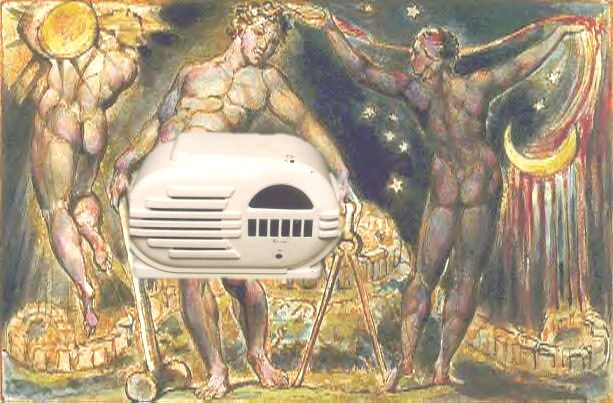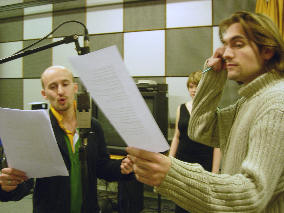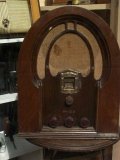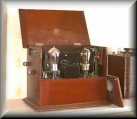Microphone positions - five in total - from closest to 'moves off' (furthest)
|
POSITION 1 - closest to the microphone (as close as possible - beware of blasting and popping) USED FOR: monologue + voice in the mind = interiorizing - the voice in the mind |
|
POSITION 2 - intimate conversation (a step away from position no 1) CLOSE-UP |
|
POSITION 3 - conversation (stand far away enough from the microphone so that your outstretched fist is level with it) - MOST RADIO DRAMA DIALOGUE HAPPENS IN POSITION THREE
NOTE: SHIFT from POSITION THREE to POSITION TWO, and back again. This demands technical acting skill. It must fit with the dialogue situation - the intimate climax of a scene?, telling a secret?, wanting to move to an objective. |
|
POSITION 4 - across the 'room' (to 10 feet away) - opens out the dialogue to a larger space + making an approach 'through the door' to characters in POSITION 3 |
|
POSITION 5 - 'moves off' (farthest off in the STUDIO, behind curtains, behind screen) or OB |

Perspective - construction, width and depth of the sound picture
Perspective explained by film shot analogy
OB - recording outside the studio
I have not included details about these MICROPHONE POSITIONS further on this site. They are crucial for scripting and production. You need to consult my book.
Learn about these production details and working at the microphone, in my book -
Beck, Alan, Radio Acting, London: A & C Black (1997) ISBN 0-7136-4631-4
For an application of this - see Close-up - making some dialogue section more intimate
============================================================
Next - You will find advice on EXPERIMENTAL radio drama pieces - being as creative as you can.
Then - further into this site:
| Silences and the overall design |
|
|
|
|
|
|
| establish presence |
|
|
| Perspective |
|
|
|
|
|
|
|
|
|
|
|
|
|
|
|
|
|
|
|
|
|
|
|
|
|
|
|
'moving camera' technique |
|
|
|
'Will you turn that music down!' |
| drop-ins | sound pictures |
|
| number the scenes carefully with a system | voice in the mind = interiorizing |
|
Styles of production, directing and post-production
|
|
|
story board |
|
|
|
|
|
|
Theoretical issues & writing-up your project
|
|
|
|
| language based = logocentric |
|
|
|
|
|
|





